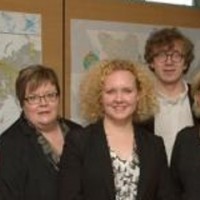
The benefits of technology are still not open to every young person despite UK’s growing tech-savvy millennial generation
Although it’s great to see children as young as 6 rivalling the digital expertise of a 45-year-old, the latest Ofcom insights into techie teens – part of Ofcom’s Communications Market Report – doesn’t address the huge numbers still without access to digital technology, who are still not benefiting from this digital revolution.
In fact, a recent study has shown that technology has actually increased the gap between the rich and the poor.
The Global Millennial Survey, the largest and most comprehensive study into millennials (those aged under 30 years-old), found that 62 percent of them believe that technology has increased the wealth gap.
This is in contradiction to some of the other survey insights which found that 83% of respondents said technology made it easier to get a job and 69% say technology creates opportunity for all.
If millennials truly believe technology offers opportunity for all and it makes it easy to gain employment then surely they would believe the gap between the rich and poor would be narrowing?
So what’s the problem here? Well, I believe part of the issue is that 81% of respondents are either employed or in education so there’s a general feeling of optimism towards technology. However, the acknowledgement of a widening gap between the rich and the poor demonstrates a belief that poorer communities may be left out in terms of education and opportunity.
Technology should create opportunity for all and it should make it easier to get a job but it becomes very easy to look through rose tinted glasses when you’re in employment or higher education. Coming from a deprived area myself (no sob story here!), I’m passionate about tackling digital exclusion, not just to help connect and mobilise poorer communities but to un-earth potential talent that could go some way in helping plug the digital skills gap in the UK.
According to the ONS (Office for National Statistics) 17% of UK households did not have access to the internet in 2013, yet digital services in this country are growing at a rate of knots and a large part of the UK is being left behind. The Government’s Digital Inclusion Charter is a step in the right direction however my issue with centralised schemes, such as this is that they become too general in message.
What we need is long term grass roots solutions. Let’s get into primary schools in deprived areas and give these young children a different route, an option they didn’t know existed. An hour a week digital tutorial for a young/old/lower income family is beneficial but where will these people be in 6 months’ or a years’ time? How do we measure the true success of the Digital Inclusion Charter? I don’t have the answer but I know from experience that the UK is missing out on some bright, young enthusiastic individuals through digital exclusion. And, in this age of superfast connectivity, that is a real travesty.
I’d like to end my musings with this – according to the latest CBI/KPMG London Business Survey the technology and creative industries will drive London’s employment growth in the next five years. What chance do young people in deprived areas have at gaining a job in these industries? Currently, almost none.
I will be addressing these issues during the forthcoming One Young World Summit in Dublin. Over 1,250 young millennial leaders will be converging on one of Europe’s biggest digital hubs and I hope to find some youth-led solutions to these issues.
You can follow my progress via www.thinkbig.eu/oneyoungworld
Dayrl West – Telefonica
This post has originally been published on the Telefónica Global Millennial Survey blog and the Telefónica O2 UK blog.








